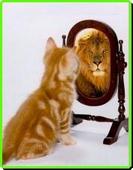 We recently heard a talk by Josipa Roksa, a coauthor (with Richard Arum) of Academically Adrift, the study which concluded that students aren’t learning very much in college, and which captured the attention of the higher ed community and the public earlier this year. Hers was the keynote address at the June conference in Philadelphia of the Higher Education Data Sharing (“HEDS”) consortium, which is a group of over 100 liberal arts colleges and a few universities to which Swarthmore belongs. We share research and planning tools and techniques. It’s a great group of IR types, and Alex and I were lucky to have the meeting in our back yard.
We recently heard a talk by Josipa Roksa, a coauthor (with Richard Arum) of Academically Adrift, the study which concluded that students aren’t learning very much in college, and which captured the attention of the higher ed community and the public earlier this year. Hers was the keynote address at the June conference in Philadelphia of the Higher Education Data Sharing (“HEDS”) consortium, which is a group of over 100 liberal arts colleges and a few universities to which Swarthmore belongs. We share research and planning tools and techniques. It’s a great group of IR types, and Alex and I were lucky to have the meeting in our back yard.
At the meeting Roksa shared with our group some of the findings from the two years of research conducted since the book was completed. Among other things, the researchers have explored experiences that positively impact student performance. Some of the things that mattered were: faculty having high expectations for students; more rigorous requirements for the course; time that the students spent studying alone (time spent in informal group study had a negative impact!); and department of major (some majors showed more gains than others). One of the hopeful notes that Roksa struck at the end of her talk was that they are now having some success at identifying the good practices that improve student learning, but the key is to ensure that more students get to experience these good practices.
This got me thinking about the importance of expectations and norms (maybe my roots as a Social Psychologist are showing). Swarthmore is a place where intense intellectual activity is just part of the ethos. But what is interesting is that while the faculty are certainly demanding of students, students’ interest in working hard is a self-perpetuating characteristic. They select to come here because that is the environment they see when they visit, and that’s what they want. Once here, they do work hard, reinforcing the norm. We’re very fortunate to have an environment where practices critical for positive learning experiences are so firmly established. It’s easier to consider implications of studies such as this when there is a strong foundation already in place.
References
Arum, R., & Roksa, J. (2011). Academically adrift: Limited learning on college campuses. Chicago: University of Chicago Press.
HEDS is at http://www.e-heds.org/. The Higher Education Data Sharing (HEDS) Consortium assists member institutions in planning, management, institutional research, decision-support, policy analysis, educational evaluation, and assessment.